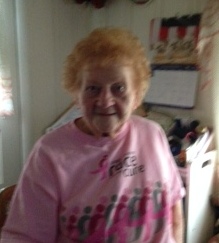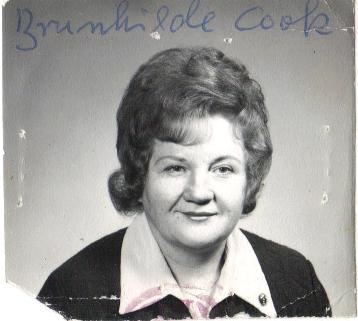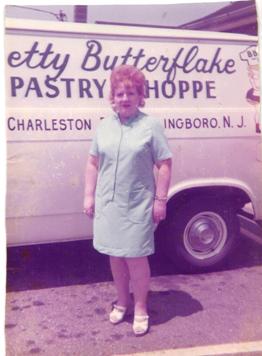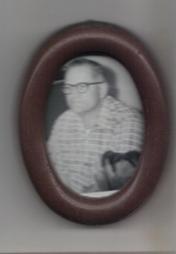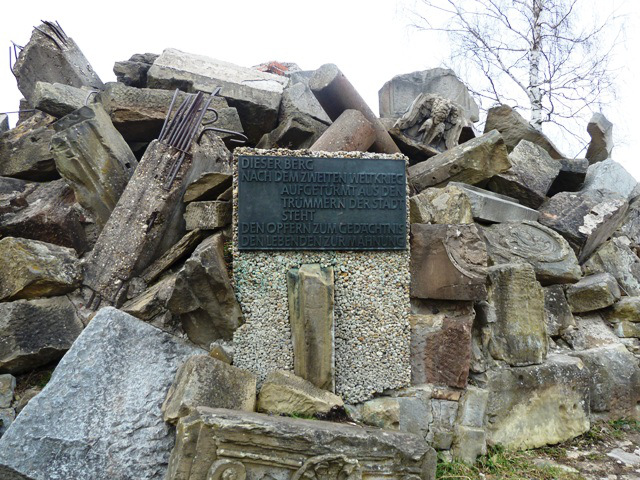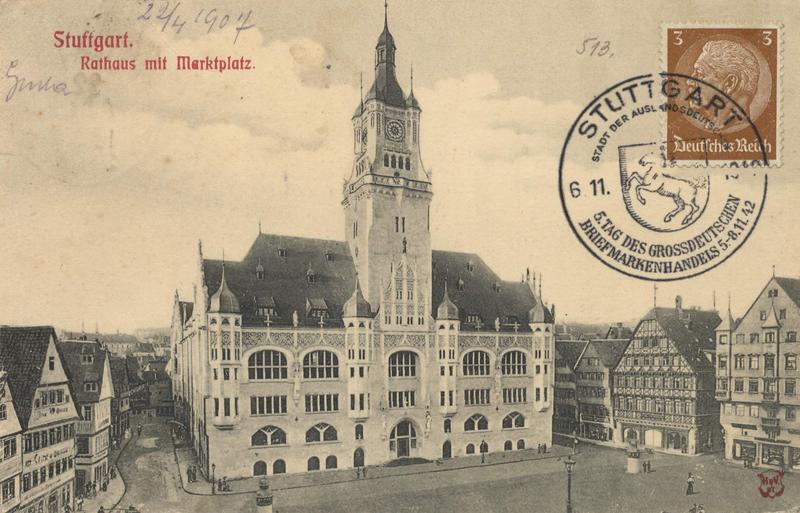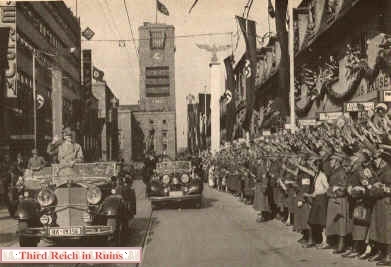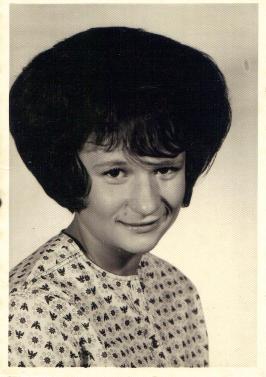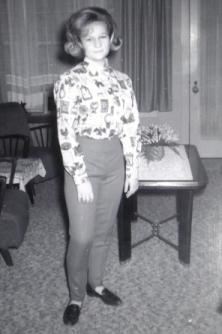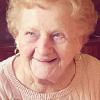Hilde’s Harrowing History
by Cate Murway
German families, like families all over Europe, were affected by the War but children were some of the most vulnerable victims during World War II. It casted a dark shadow over Brunhilde Cook’s life.
Hilde [Theurer] Cook was born March 6th in the “big city” of Stuttgart, Germany to Army veteran Otto and Anna Maria Theurer. Her dad was a “cart man”, a fruit distributor, “he had oranges and bananas that he took to the stores”. Her mom stayed at home with Hilde and her younger brother by 17 years, Peter who still resides in Germany. “He worked in a factory building machines. My brother traveled to Russia and all over the world. He calls me every Sunday.” She remembers her mother making spätzle schaben, a special type of south German egg noodle.
“The war started when I was 12 years old and it was a hard time to do anything.” She attended basic school, in “classes that had only girls”. Hilde “read everything” and is still an avid reader and her favorite author is Danielle Steel. She does recall dancing as a teenager. “It was the only thing we could do. We had to walk so far.”
There were “no jobs in Germany for nobody but there were jobs in the hospital. Someone helped me get a job in the hospital.” It was there in the mess hall that she met her future husband, Albert Cook, an only child from Massachusetts when she was 26 years old. In the Army, he was called “Cookie”. “I’m here because I married an American GI.”
First came love. Then came marriage. Then came life in a strange new land, a new life in America and farewell to everything familiar. Sounds as if she wouldn’t have traded it for the world!
By 1950, 14,175 German brides of American servicemen
had entered the United States.
Hilde has no High School education.
“I drove a motorcycle in Germany” but there are “not many good memories.
Not when you grow up in the war.”
Her pronunciations still betray her roots and
it blends the past with the present.
Adolf Hitler [1889-1945], a WWI wounded veteran, was the Austrian-born German politician who led the Nazi Party and rose to power in the last free election in 1933, opportunistically capitalizing on the depression and misery in Germany. He was a demagogue committed to war. The people were brainwashed into believing that Germany was impregnable from their media sources, newspapers and radio which both were heavily controlled by propaganda. Hitler made deceptive speeches and paraded for the German masses in his bulletproof Mercedes-Benz 770, a Grosser Mercedes.
Adolf Hitler visited Stuttgart in March 1938
“One time I saw Hitler come down the street in a parade. I didn’t care for him. My father didn’t, that’s why he was in the service. My family didn’t agree with everything.”
Germany set off on its first attempt at World domination. Thousands of Americans were to die over there. A terrible, unspeakable tragedy, a war that would claim 50 million lives, lay ahead. We cannot 'airbrush' out the parts of our history or past - we need to learn from them.
“The airplanes came. The sirens went. You went to the cellar. It was finished. There was no more house.” Listening to Hilde share her emotional snapshots of the past made it seem so immediate.
They lived in a “big apartment house. We had to make it from one house to another house through the cellar. We had to make a door so we could get to the next house. That was the only way we could make it out. Everything was flat.” Around-the-clock bombing brought the front line to German civilians and a daily dose of fear. Some of the children in the cities had to be evacuated. Hilde remembers that some of the Jewish children were sent to America. She knew of Oskar Schindler [1908-1974], the German businessman who managed to save the lives of over one thousand Jewish who worked in his factories.
“We couldn’t get shoes or anything to eat. We had to get a piece of paper to go to the store. We had food stamps. Farmers got all the money because people gave them everything to get food. One piece of roll was for $5.00.” Her brother needed shoes. They had no money. Shops were half empty of things to buy and what was available was often rationed when the government distributed a clothes ration book of coupons. So, it wasn't just the food that was rationed during WWII, clothing also became scarce when Germany was cut off from sources of cotton. The clothing rationing began in 1941, two years after food rationing started.
“We came out of the cellar and had what we had on and that was it.”
Her account is so fascinating precisely because it was not rehearsed or presented anyway near polished for the sake of putting beautiful language on paper. She simply just had no home to which she could return. By the end of the War, German families were living in the ruins of wracked and demolished cities, suffering from the series of escalating defeats.
What a "time capsule" opportunity!
She reminisced. Her family had a tree at Christmas but “I grew up in the war. We didn’t get presents.” Hilde did have a “baby doll”.
During WWII, her home town, Stuttgart, a strong industrial base for Nazi Germany, was almost completely destroyed by Allied air raids, carried out by British and American bombers. They were surrounded by bomb damaged buildings and factories and heaps of debris. Her father had come from a nearby town and he took them there to live, a safer area, for a couple of years before returning them to Stuttgart. Debris from the destruction was collected and piled up in an area west of the city, creating a hill, Rubble Mountain, called the Birkenkopf. The hill consists of nearly 15 million cubic meters of Stuttgart’s past all jumbled, crumbled and turned into a giant hill. NYC’s Empire State Building has a volume of 37 million cubic feet, so Rubble Mountain must contain the equivalent of more than 14 Empire State Buildings.
Hilde had wanted to be a beautician but “there was no more house. It was bombed down.”
After five years of war, Germany had paid the price for starting the conflict as it lay virtually destroyed. The French army occupied Stuttgart until the city was transferred to the American military occupation zone in 1946. They plundered houses and were very cruel.
“When the war was over, it was France. They took over the whole house. When the Americans came, everything was different. They threw me up a chocolate.”
Almost all of those who were affected are no longer alive and Rubble Mountain is now covered with dirt and grass and looks like any other hill. Only at the very top, one can see mounds of jagged stone that were once elegantly carved pieces of architecture, now worn and covered in moss.
“This mountain was built after WWII from the rubble of the town to stand as a memorial of the dead and a warning to the living.”
The automobile and motorcycle were purported to have been invented in Stuttgart [mechanical engineer Karl Friedrich Benz] and it is considered to be the starting point of the worldwide automotive industry, sometimes referred to as the 'cradle of the automobile'.
“Das Beste oder Nichts” or translated in English: “the best or nothing,” is the slogan of the luxury carmaker, Mercedes-Benz.
Hilde’s husband had been a “chef in the kitchen, stationed in Oklahoma” and Hilde developed asthma while they were living in the Midwest. Albert requested a transfer but it was denied. “He had to retire”. They moved to Trenton, NJ and six months later, he found work in Fort Dix. Hilde began working in the ‘Betty Butterflake Pastry Shoppe’ on Charleston Road in Willingboro, owned by the late Ella E. 'Betty' Rhoades.
She learned to drive a car after her husband died almost 35 years ago. He was severely cut in an immense misfortune while carrying a “table was heavy glass. My husband tried to take it upstairs. He was cut and he bled to death. He was in his 60’s”.
Hilde is no longer very interested in ruminating in issues like the loss of her home and the controversy over Germans being displaced from Eastern Europe after World War II. People get together in clubs to reminisce about that sort of thing but at one time, she had belonged to the German Club in Philadelphia, prior to her three medical operations.
“But the child who is born on the Sabbath day, Is fair and wise and good in every way.”
Her happiness and decidedly upbeat attitude is intertwined with her outlook on life.
In a rather surprisingly free and confident voice, Hilde shared that for the last two decades, she has lived “on her daughter’s property.” Sonja “was a beautician for 35 years”
and her husband, Kevin “has a plumbing business”. She has been blessed with one granddaughter, Stacey, a school psychologist and Director of Special Education who resides in NYC.
Brunhilde in German means “noble”.
Recommend an oral history “Spotlight”. E-mail vjmrun@yahoo.com
Hilde Cook of Burlington Township passed away into God’s loving and eternal care Monday, Dec. 18, 2017, at Samaritan Hospice Inpatient Unit in Mount Holly. She was 90. Hilde was born in Stuttgart, Germany, in 1927, where she lived until she married and came to America. Her first home with her husband and daughter was in Oklahoma. She then lived the last 50 years of her life in New Jersey with her family. Hilde was a wonderful cook and homemaker. She had many friends and found her greatest joy in being with her family and with those she loved. Wife of the late Albert Cook, Hilde was the devoted mother of Sonja Mullen (Kevin) of Burlington Township; beloved grandmother of Stacy Mullen of New York, N.Y.; and dear sister of Peter Theurer (Renate) of Stuttgart, Germany.
At the family’s request, services will be private. Memorial donations in her name may be sent to Samaritan Hospice, 5 Eves Drive (Suite 300), Marlton, NJ 08053. To offer condolences to the family please visit the web site listed below. Dennison McGee Funeral Home, Burlington www.dennisonfh.com.
